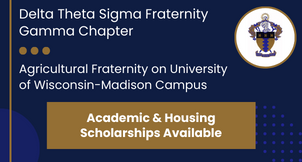Preconference Workshops February 5, 2019
AM Half-Day Morning Workshops | PM Half-Day Afternoon Workshops
Lunch is provided for anyone signed up for paid am AND pm half-day sessions
Half Day Morning Preconference Workshops
Asking the Right Questions to Facilitate Student Success (6-12 and Post-Secondary Counselors)
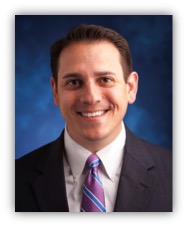
Kevin Fleming
February 5, 2019 9:30 am – 12:30 pm
Kevin Fleming
We all know that higher education may lead to economic prosperity and opens many doors for our students. However, we also know that the Masters-bound pathway isn’t for everyone. Technical skills are the new currency in the 21st century and they make all students more competitive in every industry. But how do we balance preparing students for both college and the workforce? Dr. Kevin Fleming will present data and a new animated video in a way that both invigorates and challenges the evolution of career readiness, counseling, and educational planning. It is time to reexamine what questions we should be asking of our students, and of ourselves, to maximize student success.
Using Children’s Books for Lessons (K-5)
February 5, 2019 9:30 am – 12:30 pm
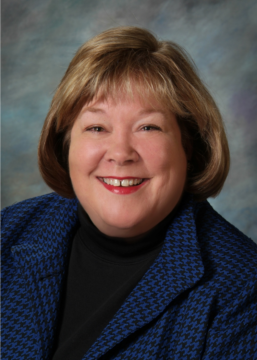
Karen Griffith
Karen Griffith
Children’s books often provide the foundation for interesting and informative counseling lessons and activities, whether in the classroom setting, as part of small group activities, or with individual students. Certainly, stories offer an authentic method for conveying important messages and truths. However, best practice requires thoughtful selection, meaningful connections, and engaging delivery for the books to yield their greatest impact. Let’s review how to choose and use well, how to ensure authentic and strong links between the book and the desired outcome, and best methods to present the books to learners.
Participants will:
- Develop a personal rubric for selecting children’s books for use in school counseling.
Budgets are limited and it is important to establish some personal guidelines for book selection. We will discuss a variety of specifications to ensure your purchases meet your needs and that you can generate effective accompanying activities/strategies. - Review best use of children’s literature in school counseling.
Books are an effective strategy for supporting the learning and insight of students. Yet, the how, when, and why children’s literature is employed as a teaching or counseling strategy matters. Books should support the goals of our lessons rather than drive the content. Let’s move beyond that idea that simply reading a book with students and discussing its meaning constitutes the total lesson. - Identify a variety of books within specific categories.
The presenter will provide a list of favorite books used in her practice as a school counselor. Participants will also have an opportunity to share their own book titles. - Gather a few activities as examples of how to use selected books.
The presenter will describe and, time permitting, engage participants in some of the specific activities used along with books in classroom and small group settings. - Practice reading books aloud to students.
Reading aloud is more than calling words. It is an acquired skill and can be learned. It takes courage, some acting ability, and a sense of fun to orally deliver books well. You will get a few tips on how to ensure your skills are always increasing.
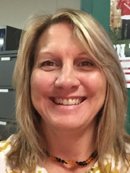
Beth Herman

Gregg Curtis
How to Implement a Comprehensive SEL Program (K-12)
February 5, 2019 9:30 am – 12:30 pm
Amidst growing recognition that social and emotional learning (SEL) skills are essential to student and adult success, schools and communities are seeking the most effective ways to teach, reinforce, and cue these skills in learners. In early 2018 the Wisconsin Department of Public Instruction introduced state-wide SEL competencies for PK-adults, acknowledging that social and emotional learning is a lifelong skill. The competencies provide educators and families with benchmarks to support student learning in this area. Accompanying these competencies are resources to help schools and communities effectively implement a school or district-wide SEL program.
This preconference session will create the context for social emotional learning, explore Wisconsin’s SEL PK-adult competencies, and give participants a chance to learn about the resources available to support their implementation and utilize tools to facilitate and measure school-wide implementation of SEL.
Two-three learning objectives:
Participants will learn the why, what, and how of teaching, supporting, and reinforcing these skills in all learners:
- Participants will understand why SEL is essential to developing learners who are college and career ready.
- Participants will learn what social and emotional learning is, explore the WI state social and emotional learning competencies, and understand four approaches to promote it in their school or district.
- Participants will learn about the resources available to support their implementation and utilize tools to facilitate and measure school-wide implementation of SEL.
How to Use the Solution-Focused Approach to Enhance Trauma-Informed Practices in Schools (K-12)
February 5, 2019 9:30 am – 12:30 pm
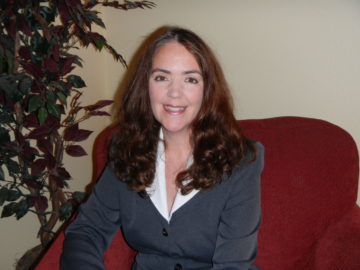
Carol E. Buchholz Holland
Dr. Carol E. Buchholz Holland, Associate Professor and School Counseling Coordinator, North Dakota State University Counselor Education Program
Although current trauma-informed practices have been found to be effective, they can be even more impactful by integrating the solution-focused approach into them. There are many benefits of the solution-focused approach and a variety of ways in which it can be used in school settings. For example, the solution-focused approach provides a common strengths-based language that can be used by adults and students throughout a school. By shifting the main focus away from problems and redirecting attention toward possible solutions, there are more opportunities to create positive outcomes and a greater likelihood of engaging stakeholders such as students, school personnel, and/or parents/guardians in the solution-building process.
The presenter will provide a brief overview of trauma-informed schools and the solution-focused approach. In addition, the presenter will assist participants in creating a “toolbox” of effective solution-focused questions and techniques which can be used to enhance trauma-informed practices in a variety of settings in schools such as classrooms, individual counseling and group counseling sessions, parent meetings, teacher consultation, and MTSS meetings. Participants will also learn about trauma-sensitive multisensory solution-focused activities that can be used with students.
LEARNING OUTCOMES:
- List reasons why it is useful to integrate the solution-focused approach into trauma-informed practices.
- Describe how neuroscience findings help support the use of the solution-focused approach.
- Demonstrate how solution-focused questions and skills can be used to enhance trauma-informed practices.
- Describe how the solution-focused approach can be used in a variety of school settings.
- Demonstrate how to use trauma-sensitive multisensory solution-focused activities with students.
Black Girl Blues (6-Post-Secondary)
February 5, 2019 9:30 am – 12:30 pm
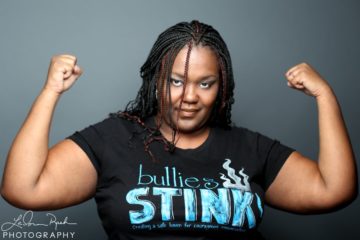
Carolyn Strong
Carolyn Strong, Dean of Students, Motivational Educator & Author, Thornton Township High School
Have we evolved beyond the brown paper bag test? What does it REALLY mean to be “black” in America today? As long as there have been African-Americans in the new world, this has been an issue up for debate. But for African American girls, these questions of racial identity and physical appearance – light skin vs. dark skin, straight hair vs. kinky hair, etc. – often manifest themselves in ways that are detrimental to them and to other girls. This media-fueled war rages on in the inner circle of girls This workshop will be filled with “ah-ha moments” that can be taken away and shared for the betterment of school culture. The presenter will also discuss best practices as they relate to teaching and mentoring African-American girls along with modeling activities to address this sensitive issue.
Carolyn is a motivational educator with an anti-bullying message of hope for children, families and schools. An educator with more than 15 years of experience working with inner- city youth, she is currently Dean of Students in a high school serving more than 1,500 young people. In this role as disciplinarian, she witnesses and confronts bullying daily by creating and implementing prevention programs in conjunction with traditional discipline. In addition to traveling the country with a positive message of self-esteem and loving yourself; she is also the author of Black Girl Blues: Small Group Sessions, Discussions and Activities to Combat Intra-Racial Bullying, The Dainty Little Gremlin, and Microaggressions: A Cautionary Tale
Career & College Exploration and Awareness in Elementary and Middle School: From Nice to Necessary (K-8)
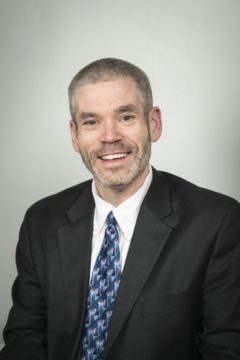
Bob Bardwell
February 5, 2019 9:30 am – 12:30 pm
Bob Bardwell, School Counselor & Director of School Counseling, Monson High School (MA)
Former First Lady Michelle Obama challenged us to Reach Higher to help students seek education and training after high school. This session will focus on college and career exploration and awareness activities specifically for Prek-8 school counselors, although high school counselors are certainly welcome to attend. We’ll discuss research that supports early interventions. Participants will learn specifically about 40 successful career and college activities that provide middle and elementary students the skills to Reach Higher.
Participants who attend will:
- Learn about the research that shows why early career and college readiness programs and activities are crucial to student long term career planning and job success
- Understand the vital role school counselors play in creating a career and college going culture in your school and community
- Understand how to build and deliver comprehensive school counseling programs and services which provide career and college knowledge and opportunities for all students
- Learn about 40 specific activities to implement in K-8 schools to help educate and inspire students to learn about careers and higher education
- Leave the session with a concrete plan listing both short and long term actions to support and advantage students
Motivation, Effort, or Executive Functions? How to better identify and support struggling students (6-12)
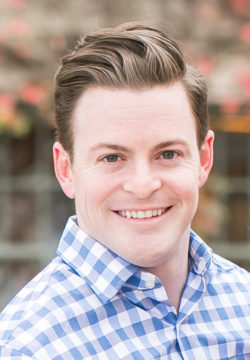
Scott Lutostanski
February 5, 2019 9:30 am – 12:30 pm
Scott Lutostanski, Director of Academic Consulting, Galin Education
Too often, struggling students are labeled as indifferent, unmotivated, or lazy. However, these are often indicators of challenges with executive functions. As a result, students can become more disengaged, home environments can become toxic, and teachers will pull their hair out wondering what they can do to help a student. These students are difficult to understand and even more challenging to work with.
Participants in this workshop will learn the foundational skills of the executive functions, how to better identify these students, what separates typical behavior from atypical, how to communicate effectively with parents, and interventions to support students.
Conversations About Change: Finding Hope for Better Outcomes Through Motivational Interviewing (K-Post-Secondary)

Kay Eibl
February 5, 2019 9:30 am – 12:30 pm
Kay Eibl, LPC, Motivational Interviewing Trainer, Waukesha County Technical College
Daily conversations with students are powerful tools we can use to increase student motivation and create lasting behavior change. Motivational Interviewing (MI) is an evidence-based conversational approach that has been widely applied in healthcare, corrections, and mental health counseling; we now also have research showing the value of applying MI in schools. Join us to learn about MI and how to apply the techniques within your school settings (K-Postsecondary). In addition to receiving an overview of MI, you’ll practice introductory MI skills, including best practices for giving advice, listening with strategic reflection statements, and eliciting change talk to increase students’ motivation. The tools you will learn can be widely applied to help students and families make positive and lasting behavior changes in their lives.
Target audience:
The Motivational Interviewing (MI) skills you will learn in this session can be applied in any elementary, secondary, or post-secondary setting. While some of the skills work well for students and families children in levels K-3, the target audience is counselors and other helping professionals regularly working with students grade 4 and above. Examples from a range of levels will be used to facilitate learning.
If you have prior knowledge and experience with MI, you are invited to join us to refresh or further refine your MI skills! Modifications of activities will be provided for those already comfortable with introductory MI techniques. Join us to advance your techniques!
Goals:
The manner in which we converse with students influences student motivation. In this session, you will learn how to better identify student readiness, utilize and refine MI skills, respond more effectively in the context of your work, and observe how small changes in communication can enhance results.
Half Day Preconference Workshops – Afternoon
Privilege and Oppression: Helping Teachers Understand Students (K-12)
February 5, 2019 1:30 pm – 4:30 pm

Karen Griffith
Karen Griffith
Counselors possess unique knowledge and skills relevant to social justice and working with traditionally marginalized populations. Moreover, there is a need to share what we know with others who are working with our students. The imperative is to convey this information in a manner that ensures the safety of the audience and keeps all of them engaged in an ongoing conversation. Today’s political climate underscores the need for finding effective, respectful ways to talk about difficult topics.
The capacity to engage others in conversations around social justice begins with awareness and knowledge. We will explore briefly our own personal beliefs, experiences, and world view. Then, information will be provided around relevant issues, including privilege, oppression, poverty, and the impact students’ family and home situations may have on their classroom experiences.
We will consider a few alternatives for how to help teachers understand the various challenges and circumstances represented by the students who enter their classrooms. Participants will engage in a variety of activities which might then be used with their own faculties. We will discuss best practice for how those activities should be employed. Specifically, we will address common mistakes, possible barriers, and challenges.
Finally, we will succinctly review current trends, programs, and strategies schools may employ that support an inclusive environment. Participants will have the opportunity to discuss and evaluate how/if they might benefit their own schools.
Courageous conversations are a normal part of the school counselor’s day. We can and must use that expertise to expand the knowledge, awareness, and skills of the other members of our faculty. Utilizing those counseling skills to gently challenge biases, myths, and misunderstandings supports everyone and establishes the counselor as an important resource for understanding students.
Participants will:
- Increase awareness of personal world views and how they impact all other interactions.
- Understand the potential impact of current events and circumstances on students in our classrooms.
- Develop plans for engaging faculty in the necessary courageous conversations around cultural competence, diversity, and multicultural practice.
- Explore strategies for enhancing school climate and student engagement for all.
Integrating Comprehensive School Counseling Programs (CSCP) with Multi-tiered Systems of Support (MTSS) to Enhance Student Outcomes (K-12)
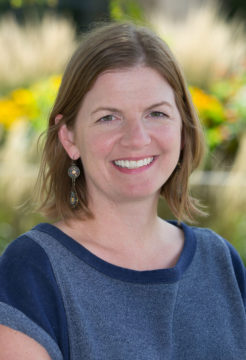
Jennifer Betters-Bubon
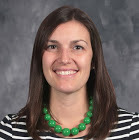
Avery Kansteiner
February 5, 2019 1:30 pm – 4:30 pm
Jennifer Betters-Bubon, Associate Professor and Program Coordinator, Counselor Education, UW-Whitewater & Avery Kantsteiner, MS, LPC, School Counselor, Sugar Creek Elementary School
Confused about how best to incorporate MTSS (RTI, PBIS) practices into your current counseling or school program? This preconference sectional is designed for counselors who are leaders in the implementation of the ASCA National Model and PBIS programs. Through this dynamic presentation, participants will spend time with others engaged in comprehensive program implementation; determine strategies for moving their schools and teams forward and leave with support and information to continue making our schools positive places for all students. Concrete examples of schools that have been successful in ASCA model/PBIS implementation will be shared. Participants are encouraged to bring their school counseling program and/or PBIS ideas and materials (e.g., Cool Tools, acknowledgment ideas, school wide practices—electronic or paper copies). We plan on engaging in conversations and sharing best practices.
Time will be devoted to specific discussions surrounding: Universal systems (e.g., SEL programs, Cool Tools, Acknowledgement Systems, and Motivating the team, equitable classroom practices), using multiple forms of data to assess programs (e.g., office discipline referrals, school climate perception data, school data profiles) and dealing with the complexities of MTSS/school counseling program implementation (e.g., examining culturally relevant practices and how to move into evidence based tier 2/3 interventions). It is our goal that participants leave with a renewed sense of purpose and a wide array of resources to assist in their comprehensive program implementation.
Trauma and Sensory Processing- Making Connections through the Sensory Experience (K-12)
February 5, 2019 1:30 pm – 4:30 pm
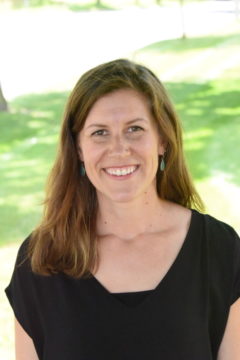
Sarah Peters
Sarah Peters, MS, OTR/L, Healing Hearts Family Counseling, LLC
Sensory integration continues to be on the forefront of highly sought out topics for professionals working with individuals who have experienced trauma and currently struggle with emotional and behavioral concerns in schools. The goal of this workshop is to give counselors tools to teach students to be present in the classroom by supporting underlying sensory needs for students with trauma histories. Children with sensory challenges who have experienced trauma struggle to be in their own bodies. The additional stressor of the classroom environment can further strain an already taxed nervous system which often leads to behavior and social/emotional challenges.
Participants will broaden their knowledge base on theory of sensory processing and the impacts that trauma has on the nervous system. They will gain skills in observing underlying sensory related behaviors and patterns. This session will emphasize the lab experience. When clinicians feel it in their bodies, it helps integrate the understanding of sensation and modulation within their unique arousal patterns. Ultimately this aids in their perspective and lens in which they view their student’s individual sensory needs and behavioral patterns. Sensory and regulation-based tools will aid in connecting with students and giving them the lifelong skills to be present in the classroom from a sensory perspective.Outline/Objectives:
- Counselors will be given tools to teach students to be present in the classroom by supporting underlying sensory needs for students with trauma histories.
- Understand how trauma impacts the brain and sensory processing.
- Participants will be able to use observational skills to identify issues related to underlying sensory needs.
- Discuss and explore tools and techniques through hands on lab experience.
Note to participants: Suggestion of wearing comfortable clothes that you can move in. If you have a yoga mat and/or exercise/yoga ball to bring with you for the lab experience, that would be helpful.
Forget About the Miracle Question: How to Think Like a Solution-Focused Counselor — FORUM (K-12)
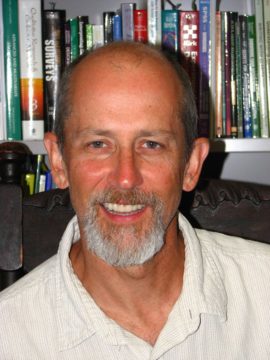
Mark Gillen
February 5, 2019 1:30 pm – 4:30 pm
Mark Gillen, PhD, NCC, LPC, LSC, Professor & Dept. Chair, University of Wisconsin-River Falls
If you’re a school counselor who uses Solution Focused Therapy with clients and you want to brush up on your training while going beyond the miracle question – this presentation is for you.
Participant comments from previous presentations by Dr. Gillen on this topic include:
- The presentation was informative in a practical way. Dr. Gillen used humor and activity to engage the participants while simultaneously demonstrating the main concepts and applicability of SFC techniques. The case study and discussion session was valuable to delve deeper into the topic.
- I appreciate that Dr. Gillen was willing to guide individual participants on applying SFC to their practice, especially school counselors
- One of my best sessions yet and I have been coming for 12+ years! Thanks for all the practical suggestions and reminders
- This session really helped to reprogram my thinking about using a solutions focused approach. I’m really excited to start using it more in my work with kiddos
- Good reminders for those of us who have gotten lazy in our work!
- Thank you. I am inspired!
Take 2! Tips, Tricks and Treasures for Tackling Anxiety (K-8)
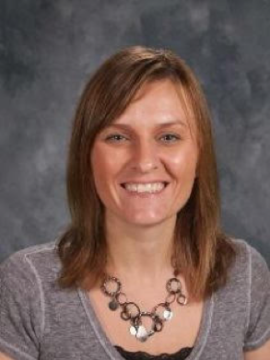
Jenny Holle
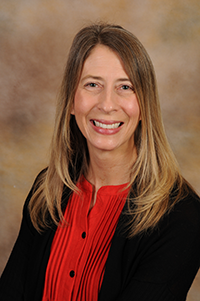
Andrea Donegan
February 5, 2019 1:30 pm – 4:30 pm
Andrea Donegan, School Counselor, Dyer Intermediate- Burlington Area School District & Jenny Holle, School Counselor, Cooper Elementary School – Burlington Area School District
As the number of students who struggle with anxiety increases, join us to learn more ideas, resources, tips, strategies, and skills to help students prevent, cope with and/or overcome their anxiety. Our focus will be on sharing what we have learned over the last 20+ years as school counselors who are passionate about assisting students who struggle with anxiety. Rather than a program or curriculum, we will share the tried and true, the details that make or break a strategy, and skills that help students prevent or overcome the symptoms of anxiety. We will learn together through presenter sharing out, interactive and hands on activities, and participant sharing.
School Counselor Self-Care and Student Success (K-12)
February 5, 2019 1:30 pm – 4:30 pm
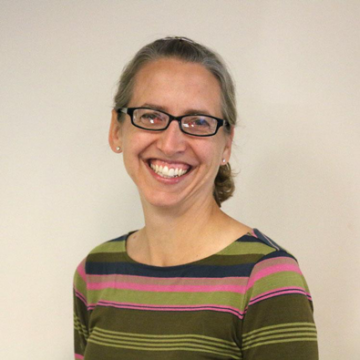
Erica Kruger
Erica Kruger, School Counselor, Madison Metropolitan School District
Many times, when designing our school-wide systems of support, we give limited attention to one of our most powerful intervention strategies; our own wellbeing. As adults, our ability to effectively regulate our emotions and productively manage stress directly influences the quality of support that we provide to students and our contributions to broader school culture. In this session, we will explore the direct relationships that exist between adult wellbeing and student success and consider how we might help shift perceptions of self-care as a “luxury” to self-care as a foundational part of ethical, professional practice. During our three hours together, participants will:
- Design a personalized framework for wellbeing and identify relevant self-care strategies,
- Explore a variety of mindfulness practices that can strengthen wellbeing,
- Examine intersections between adult wellbeing and trauma informed care, restorative practices and culturally responsive teaching,
- Share wisdom and strategies related to supporting adult and student wellbeing, and
- Develop actionable ideas for how to increase attention to wellbeing on a personal, school, or district level.
Participants are encouraged to wear clothing that supports comfort; some light, non-strenuous movement will be incorporated into the session.
Reach Higher Wisconsin Convening ~ Panel Discussion: Career Readiness Policies and Action (K-12 and Post-Secondary Counselors) (FREE)

Kevin Fleming
February 5, 2019 1:30 pm – 4:30 pm
Kevin Fleming
Join regional leaders, movers-and-shakers, and policy makers as we discuss the current focus on career readiness and future perspectives towards work-based learning. We are committed to ensuring all our students are prepared for life and work after school for the betterment of our residents’ families and regional economic prosperity. Come participate in a panel discussion regarding how we plan to achieve this lofty, but vital, goal.
Click here to learn more about the Reach Higher Wisconsin Convening
Afternoon on the Hill (K-PS) (FREE)
February 5, 2019 1:30 pm – 4:30 pm
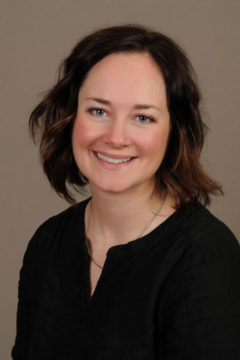
Rachel Pufall, WSCA Government Relations Director
WSCA’s Afternoon on the Hill continues to be a cornerstone of the annual conference. Come learn how to effectively advocate for the profession you love and put it to practice under the dome! And, if you would like another counselor to join you on your legislative visits, we have a group lined up to do just that! Following our interactive training session, we will walk to the Capitol where you will meet with your member of the WI Senate and Assembly. Back by popular demand, as a capstone to the experience, you will be invited to toast your good fortune as a school counselor advocate by enjoying a complimentary beverage at a nearby establishment. Afternoon on the Hill is inspiring, important, and fun! Your participation makes a BIG difference and will keep our collective positive momentum growing! Cheers!!


